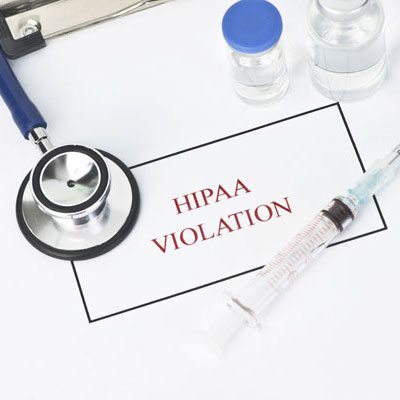5 Most Common HIPAA Violations (and How You Can Avoid Them)

 The Health Insurance Portability and Accountability Act (HIPAA) exists to protect the confidential healthcare data of millions of American patients.
The Health Insurance Portability and Accountability Act (HIPAA) exists to protect the confidential healthcare data of millions of American patients.
For violating HIPAA, fines can range from $100 to a staggering $1.5 million. So, it’s important for your organization to ensure that violations are avoided.
Thankfully, they easily can be, as long as you have the right policies in place.
Do you know what you should be looking out for?
Here are 5 of the most common HIPAA violations that you’ll want to avoid.
Disclosure of Protected Information
The first thing to remember is that healthcare data is protected, therefore, a common (and easily avoidable) HIPAA violation is to ensure that disclosure of this protected information doesn’t happen.
This can come in many forms. Have an employee who likes to gossip about patients? This is a violation, so employees must recognize their position and respect the privacy of their patients.
Only those who need to know should have access to data and only when necessary.
Device Theft Compromising Unprotected Data
A theft of a device used to hold patient healthcare data can put the spotlight on any poor data handling.
If you hold patient data on a device without putting the right safeguards in place, you could be liable for a fine if the device is then stolen. Data theft is one of the most common HIPAA violations.
Be sure to encrypt the data and use strong passwords to protect any kind of device that your organization uses to hold private healthcare information.
Hacking Resulting in Data Loss or Theft
Data security is a full-time consideration if your organization holds private healthcare information.
Take proper precautions to prevent intruders. Keep anti-virus software fully up-to-date and use strong passwords with numbers and special characters. Regularly change your passwords as well.
Consider a Unified Threat Management service to ensure your workstations are protected from intrusion and kept up-to-date, around the clock.
Rogue Employees
Unfortunately, the actions of any of your employees are your responsibility. Their actions could result in a HIPAA violation, which you can do your best to avoid with proper training and screening.
Your employees must not access healthcare data without authorization – that includes data on a friend, enemy, family member, or anyone if they’re not entitled to view the data.
They also can’t transfer or sell the data for their own gain – that’s a criminal offense, but you’ll also be liable.
Poor Data Disposal
Your organization should dispose of personal healthcare information when it’s no longer needed. With HIPAA in mind, dispose of the data appropriately so that others can’t retrieve the information.
Shred paper records and ensure these are then destroyed. For electronic data, any information deleted must be properly erased. If you intend to reuse storage devices like hard drives, make certain they’re ‘zeroed’ to ensure all data is fully overwritten.
More information on HIPAA data disposal can be found here.
Avoiding Common HIPAA Violations
If you’re a healthcare provider without sufficient safeguards in place for your patient’s data, you could find yourself at risk of significant financial penalties.
Don’t let your wallet or your reputation suffer. Encrypt and secure your data (whether it’s on paper or electronic devices). Be sure your employees are trained to handle the data appropriately.
If you’re concerned about your data security, why not contact us for a network audit? You’ll get an honest assessment of your current security procedures to avoid these common HIPAA violations.
Sagacent Technologies offers technology management and support, including proactive/preventative maintenance, onsite and offsite data back-ups, network and security audits, mobility solutions, disaster planning and emergency business resumption services. The company serves clients of 10 to 150 employees within the Silicon Valley region.
